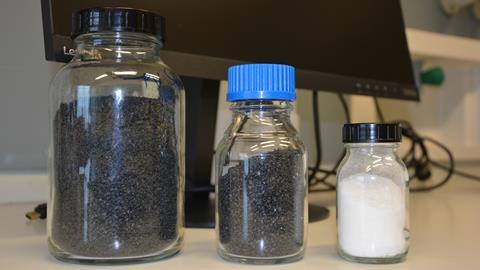Covestro has developed a process for the chemical recycling of polycarbonate.
Covestro’s plant in the port of Antwerp has been producing polycarbonate since the 1980s. They have recently developed a chemical recycling process in their Technology Centre that allows them to convert polycarbonate products, such as PC casings, into monomers. These in turn can be used as feedstock for their own polycarbonate production process. The process will be further optimised and scaled up in a pilot plant in Leverkusen, the company said in a press release.
Polycarbonate is a versatile plastic. It was invented by Hermann Schnell seventy years ago. Covestro produces the plastic at several locations around the world, including the port of Antwerp. It is resistant to high temperatures, strong, light and easy to shape. It can be found in smartphone covers, bicycle helmets, headlight housings and safety glasses, among other things, and is mostly made from fossil raw materials.
Covestro wants to reduce the use of fossil fuels, in part by giving used polycarbonate a second life. They already recycle polycarbonate mechanically, but this only works if the waste stream is pure enough. Many polycarbonates contain additives, which make reusing difficult. The new chemical recycling process complements mechanical recycling. It allows them to process wider waste streams: it works for components with more than 50 per cent polycarbonate, such as PC screen cases.
Their process starts with shredded end-of-life products. They dissolve the granules, heat, stir and add chemicals to start the degradation process. After distillation, crystallisation and other processes, they are left with a white powder. This can be used as a new raw material for their own polycarbonate production process.













Nog geen opmerkingen